While Countdown to the Kingdom’s focus remains on Heaven’s Messages, prophecy is not only those messages received in more extraordinary forms but is also the exercise of the prophetic gift inherent in all the baptized who share in Christ’s “priestly, prophetic, and royal office”(Catechism of the Catholic Church, n. 871). Here is such a word from one of the successors of the Apostles, Bishop Marc Aillet of the Diocese of Bayonne, France, who reminds the faithful that as Christians, our “health” and that of our neighbour’s, is not restricted to merely the physical plane but must include our emotional and spiritual wellbeing as well…
Editorial by Bishop Marc Aillet for the diocesan magazine Notre Eglise (“Our Church”), December 2020:
We are living through an unparalleled situation which continues to preoccupy us. We are undoubtedly going through a health crisis that is without precedent, not so much in terms of the scale of the epidemic as in its management and its impact on people’s lives. Fear, which has taken hold of many, is maintained by the anxiety-inducing and alarmist discourse of the public authorities, constantly relayed by most of the principal media. The result is that it is increasingly difficult to reflect; there is an evident lack of perspective in relation to events, an almost generalized consent on the part of citizens to the loss of freedoms which are nonetheless fundamental. Within the Church, we can see some unexpected reactions: those who once denounced the authoritarianism of the Hierarchy and systematically challenged its Magisterium, in particular in the area of morals, today submit to the State without batting an eyelid, seeming to lose all critical sense, and they set themselves up as moralists, blaming and categorically denouncing those who dare to ask questions about the official doxa or who defend fundamental freedoms. Fear is not a good counsellor: it leads to ill-advised attitudes, it sets people against one another, it generates a climate of tension and even violence. We may well be on the verge of an explosion!
See, judge, act: these three well-known steps of the Action Catholique (Catholic Action) movement, presented by Pope Saint John XXIII in his encyclical Mater et Magistra as characterizing the Church’s social thought, may well shed light on the crisis that we are experiencing.
To see, meaning to open one’s eyes to the overall reality and to stop narrowing the focus to the epidemic alone. There is certainly the Covid-19 epidemic which admittedly brought about dramatic situations and a certain exhaustion of healthcare personnel, especially during the “first wave”. But with hindsight, how are we not to relativize its seriousness in relation to other causes of distress that too often are overlooked? First of all there are the numbers, which are presented as revealing the unprecedented gravity of the situation: following the daily count of deaths during the “first wave”, we now have the daily announcement of so-called “positive cases”, without our being able to distinguish between those who are sick and those who are not. Should we not be making comparisons with other equally serious and deadly pathologies, which we do not discuss and whose treatment has been postponed due to Covid-19, sometimes causing fatal deterioration? In 2018 there were 157000 deaths in France due to cancer! It took a long time to talk about the inhuman 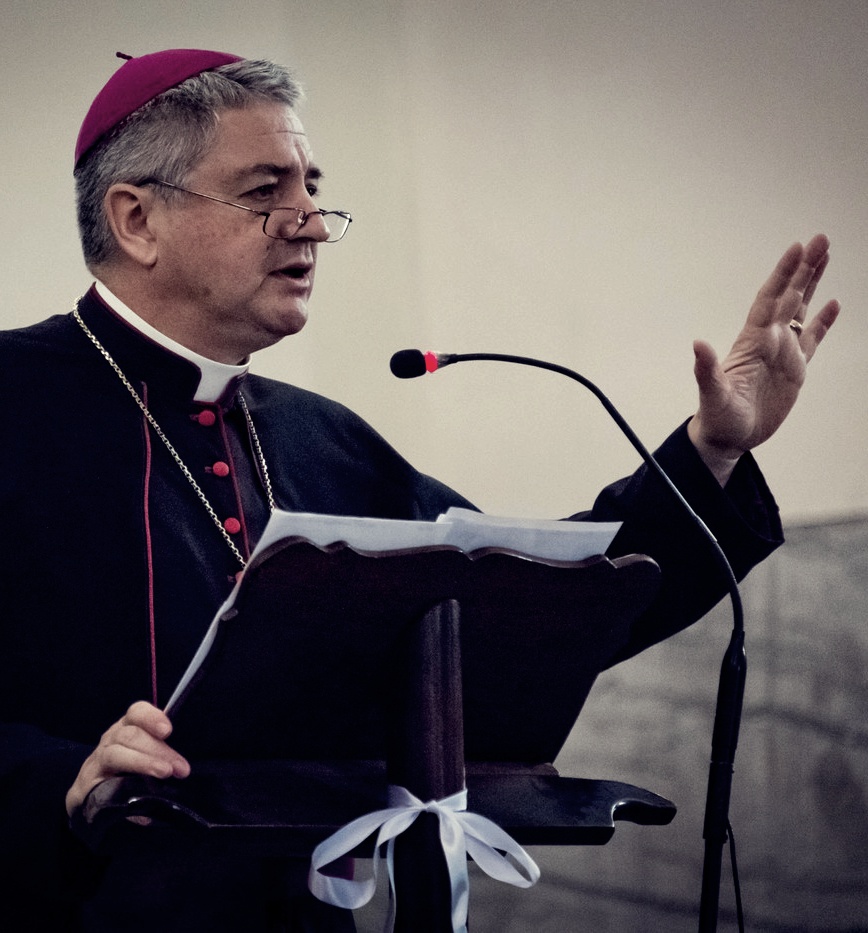 treatment that was imposed in care homes on the elderly, who were shut in, sometimes locked in their rooms, with family visits being prohibited. There are many testimonies concerning the psychological disturbance and even the premature death of our elders. Little is said about the significant increase in depression among individuals who were unprepared. Psychiatric hospitals are overloaded here and there, pyschologists’ waiting-rooms are crowded, a sign that French mental health is worsening – a cause for concern, as the Health Minister has just publicly acknowledged. There have been denunciations of the risk of “social euthanasia”, given estimations that 4 million of our fellow citizens find themselves in situations of extreme loneliness, not to mention the additional million in France who, since the first confinement, have fallen below the poverty threshold. And what about small businesses, the suffocation of small traders who will be forced to file for bankruptcy? We already have suicides among them. And bars and restaurants, which had nonetheless agreed to drastic health protocols. And the ban on religious services, even with reasonable sanitary measures, relegated to the category of “non-essential” activities: this is unheard of in France, except in Paris under the Commune!
treatment that was imposed in care homes on the elderly, who were shut in, sometimes locked in their rooms, with family visits being prohibited. There are many testimonies concerning the psychological disturbance and even the premature death of our elders. Little is said about the significant increase in depression among individuals who were unprepared. Psychiatric hospitals are overloaded here and there, pyschologists’ waiting-rooms are crowded, a sign that French mental health is worsening – a cause for concern, as the Health Minister has just publicly acknowledged. There have been denunciations of the risk of “social euthanasia”, given estimations that 4 million of our fellow citizens find themselves in situations of extreme loneliness, not to mention the additional million in France who, since the first confinement, have fallen below the poverty threshold. And what about small businesses, the suffocation of small traders who will be forced to file for bankruptcy? We already have suicides among them. And bars and restaurants, which had nonetheless agreed to drastic health protocols. And the ban on religious services, even with reasonable sanitary measures, relegated to the category of “non-essential” activities: this is unheard of in France, except in Paris under the Commune!
To judge, meaning to evaluate this reality in the light of the main principles on which the life of society is founded. Because man is “one in body and soul”, it is not right to turn physical health into an absolute value to the point of sacrificing the psychological and spiritual health of citizens, and in particular to deprive them of freely practicing their religion, which experience proves to be essential for their equilibrium. Because man is social by nature and open to fraternity, breaking family relationships and friendships is unbearable, as is condemning the most fragile people to isolation and the anguish of loneliness, just as it is not right to deprive artisans and small traders of their activity, given how much they contribute to social conviviality in our towns and villages. If the Church recognizes the legitimacy of public authority, it is on condition that, according to a just hierarchy of values, public authorities facilitate the exercising of freedom and responsibility by everyone and promote the fundamental rights of the human person. However, we have favoured an individualistic conception of life and have added facile blame to the opprobrium inflicted on a whole population (treated like children) by brandishing the specious argument of the lives of patients in intensive care and exhausted caregivers. Should we not first recognize the deficiency of our health policies, which have broken budgets and weakened hospital institutions in terms of insufficient and poorly paid care personnel and the regular reduction of resuscitation beds? Lastly, because man was created in God’s image, the ultimate foundation of his dignity – “You made us for yourself, Lord, and my heart is restless until it rests in you” ( Saint Augustine) – it would be wrong to underestimate freedom of worship, which remains, under the Law of the separation of the Churches and the State (promulgated under the tensest of circumstances), the first of all fundamental freedoms – one that citizens, kept in a state of fear, agreed to abandon without discussion. No, the health argument does not justify everything.
To act. The Church is not obliged to align itself with reductionist and stuttering official pronouncements, much less to be the “conveyor belt” of the State, without this implying a lack of respect and dialogue or calls for civil disobedience. Her prophetic mission, in the service of the common good, is to draw the attention of the public authorities to these serious causes of distress that are directly linked to the management of the health crisis. Nursing staff must naturally be supported and assistance given to the sick – prudence in the application of barrier gestures is part of the national effort that applies to everyone – but without hastily charging citizens with responsibility for their own distress. In this context we need to applaud the professionalism of health personnel who devote themselves to the sick, and to encourage the generosity of volunteers who commit themselves to serving the most disadvantaged, with Christians often being at the forefront. We must give voice to the just demands of those who are being stifled in their work (I am thinking of artisans and shopkeepers). We must also know how to denounce unequal treatment, while not being afraid to relativize the health argument that is being brandished insistently in favour of closing small businesses and prohibiting public worship, whereas schools, supermarkets, markets, public transport have remained operational, with potentially greater risks of contamination. When the Church argues for freedom of worship, she defends all the fundamental freedoms that have been confiscated in an authoritarian manner, even if only temporarily, such as the freedom to come and go at will, to come together in order to work for the common Good, to live off the fruit of one’s labour, and to lead a dignified and peaceful life together.
If we must “render to Caesar what belongs to Caesar”, we must also “render to God what belongs to God” (Mt 22:21), and we do not belong to Caesar but to God! The meaning of worship of God is that it reminds everyone, even non-believers, that Caesar is not all-powerful. And we must stop dialectically opposing the worship of God, written in the first three words of the Decalogue, to love of neighbour: they are inseparable, and the latter is rooted in the former! For us as Catholics, perfect worship goes by way of Christ’s Sacrifice, made present in the Eucharistic Sacrifice of the Mass that Jesus commanded us to renew. It is by uniting ourselves with this Sacrifice physically and together that we can present to God “our whole person as a living sacrifice, holy, capable of pleasing God” this for us is the right way to worship him (Rom 12:1). And if it is authentic, this worship will necessarily find its fulfillment in our passion for the good of others, in mercy and the search for the common Good. That is why it is prophetic and imperative to defend the freedom of worship. Let us not let ourselves be robbed of the source of our Hope!
Note: Msgr. Alliet has openly encouraged and supported the apostolate of the French seer “Virginie”, whose messages have appeared on this site.

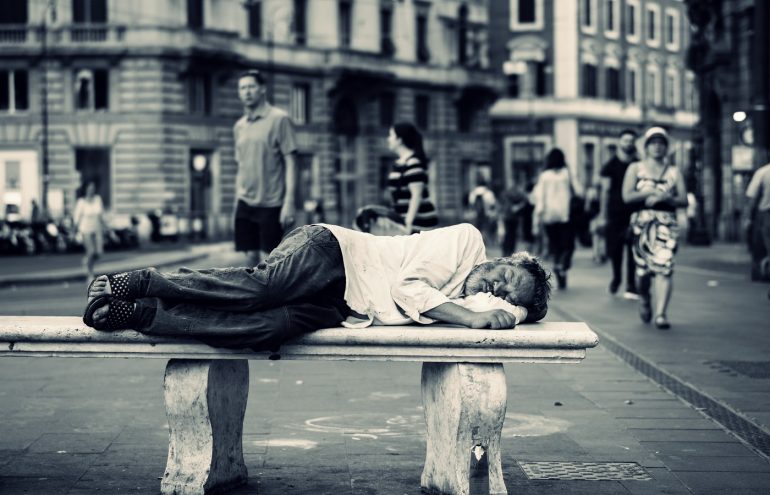

 Alicja Lenczewska
Alicja Lenczewska

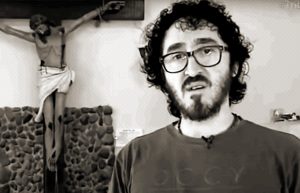
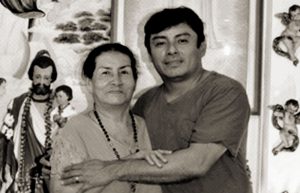
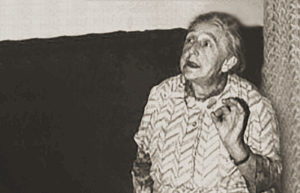 Elizabeth Kindelmann
Elizabeth Kindelmann Through what became The Spiritual Diary, Jesus and Mary taught Elizabeth, and they continue to instruct the faithful in the divine art of suffering for the salvation of souls. Tasks are assigned for each day of the week, which involve prayer, fasting, and night vigils, with beautiful promises attached to them, laced with special graces for priests and the souls in purgatory. In their messages, Jesus and Mary say that The Flame of Love of the Immaculate Heart of Mary is the greatest grace given to mankind since the Incarnation. And in the not-so-distant future, her flame will engulf the entire world.
Through what became The Spiritual Diary, Jesus and Mary taught Elizabeth, and they continue to instruct the faithful in the divine art of suffering for the salvation of souls. Tasks are assigned for each day of the week, which involve prayer, fasting, and night vigils, with beautiful promises attached to them, laced with special graces for priests and the souls in purgatory. In their messages, Jesus and Mary say that The Flame of Love of the Immaculate Heart of Mary is the greatest grace given to mankind since the Incarnation. And in the not-so-distant future, her flame will engulf the entire world. Father Stefano Gobbi
Father Stefano Gobbi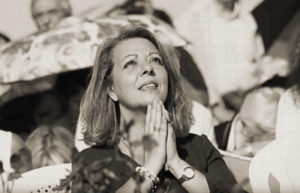 Why Gisella Cardia?
Why Gisella Cardia?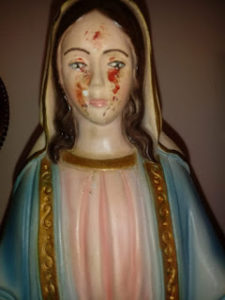 Thirdly, the messages have frequently been accompanied by visible phenomena, photographic evidence found in In Cammino con Maria, which cannot be the fruit of subjective imagination, notably the presence of the stigmata on Giselle’s body and and the appearance of crosses or religious texts in blood on Gisella’s arms. See the pictures taken from her apparition website
Thirdly, the messages have frequently been accompanied by visible phenomena, photographic evidence found in In Cammino con Maria, which cannot be the fruit of subjective imagination, notably the presence of the stigmata on Giselle’s body and and the appearance of crosses or religious texts in blood on Gisella’s arms. See the pictures taken from her apparition website 
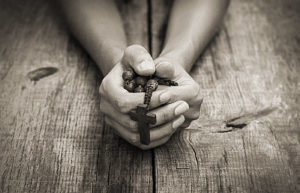 Jennifer
Jennifer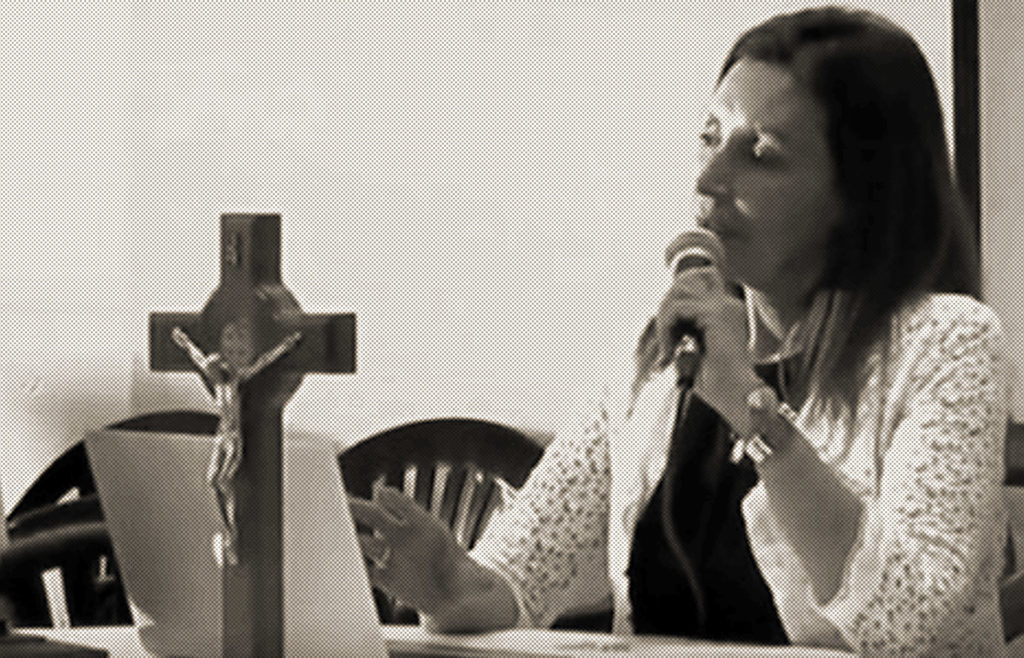
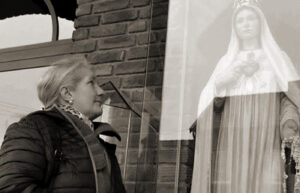 Why Manuela Strack?
Why Manuela Strack?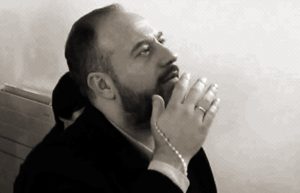
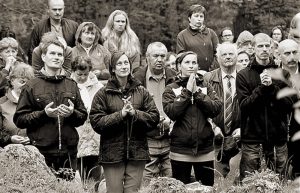
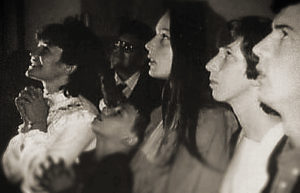 Why the Visionaries of Our Lady of Medjugorje?
Why the Visionaries of Our Lady of Medjugorje?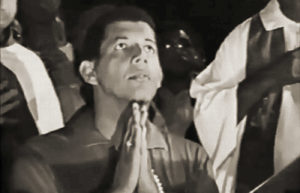 Why Pedro Regis?
Why Pedro Regis?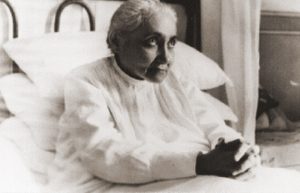 Why the Servant of God Luisa Piccarreta?
Why the Servant of God Luisa Piccarreta? of the saints. It wasn’t until she became a “Daughter of Mary” that the nightmares finally ceased at the age of eleven. In the following year, Jesus began to speak interiorly to her especially after receiving Holy Communion. When she was thirteen, He appeared to her in a vision that she witnessed from the balcony of her home. There, in the street below, she saw a crowd and armed soldiers leading three prisoners; she recognized Jesus as one of them. When He arrived beneath her balcony, He raised his head and cried out: “Soul, help Me!” Deeply moved, Luisa offered herself from that day on as a victim soul in expiation for the sins of mankind.
of the saints. It wasn’t until she became a “Daughter of Mary” that the nightmares finally ceased at the age of eleven. In the following year, Jesus began to speak interiorly to her especially after receiving Holy Communion. When she was thirteen, He appeared to her in a vision that she witnessed from the balcony of her home. There, in the street below, she saw a crowd and armed soldiers leading three prisoners; she recognized Jesus as one of them. When He arrived beneath her balcony, He raised his head and cried out: “Soul, help Me!” Deeply moved, Luisa offered herself from that day on as a victim soul in expiation for the sins of mankind. immobile, rigid-like state that appeared almost as if she were dead. It was only when a priest made the sign of the Cross over her body that Luisa regained her faculties. This remarkable mystical state persisted until her death in 1947—followed by a funeral that was no little affair. During that period in her life, she suffered no physical illness (until she succumbed to pneumonia at the end) and she never experienced bedsores, despite being confined to her little bed for sixty-four years.
immobile, rigid-like state that appeared almost as if she were dead. It was only when a priest made the sign of the Cross over her body that Luisa regained her faculties. This remarkable mystical state persisted until her death in 1947—followed by a funeral that was no little affair. During that period in her life, she suffered no physical illness (until she succumbed to pneumonia at the end) and she never experienced bedsores, despite being confined to her little bed for sixty-four years.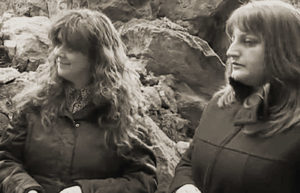 Why Simona and Angela?
Why Simona and Angela?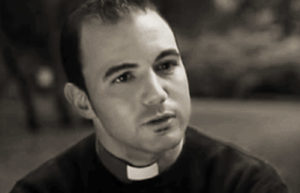
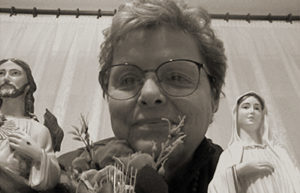 Valeria Copponi
Valeria Copponi